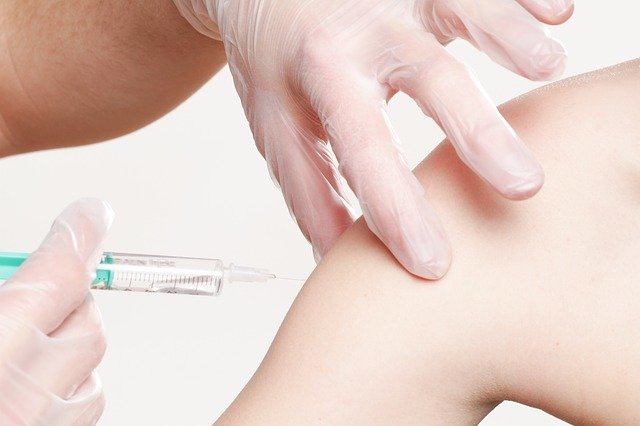
Thanks to the hard work of the world's top scientists, less than twelve months since the entire globe entered a state of near-total shutdown in response to the COVID-19 pandemic, several safe and effective vaccines have been developed that provide high levels of immunity against the disease.
The vaccines don't just help to stop people contracting COVID-19, they also help to reduce symptoms, hospitalisations, transmission, and probability of death. This is an achievement that the whole world should be proud of, and a cause for celebration as they help to lead us out of lockdown.
Depending on which vaccine you receive, two doses may be required in order to develop high resistance to the disease. But why? This is a question that a lot of people have been asking since the vaccine rollout began, and we believe that it's important to answer this question clearly in order for people to understand and feel comfortable when receiving the vaccine.
So, let's get right into it and find out why some of the COVID vaccines require two doses - and why others don't!
[more]
How do COVID-19 vaccines work?
Two of the vaccines you may have heard about - the ones from Pfizer-BioNTech and Moderna - work slightly differently from the vaccine developed by Oxford-AstraZeneca. The first two vaccines take advantage of messenger RNA (mRNA) technology that works to provide your body with instructions on how to create the spike protein that's specific to the coronavirus that causes COVID-19. When you get vaccinated, your immune system processes information on the spike protein and develops an immune response to it, which includes the production of antibodies.
Once your vaccine has been administered, your immune system continues to store information on the spike protein - and when you're exposed to the virus for real, your immune system will then use the stored information to effectively respond and protect you from becoming sick.
The complete immunity process usually takes around two weeks after the second dose of the vaccine has been delivered. This is why it is still possible to contract the virus and become sick if you are exposed shortly after getting vaccinated.
Unlike the Pfizer-BioNTech and Moderna vaccines, which store the instructions in single-stranded RNA, the vaccine developed by Oxford-AstraZeneca uses double-stranded DNA. Both methods, however, deliver high levels of vaccine efficacy.
Why are two doses of the COVID-19 vaccine needed?
Throughout the early studies of the vaccines, researchers found that after one dose was administered, a relatively weak immune response was provoked. However, after a second dose was added, the immune response was much stronger. This showed that the first doses were the building blocks needed for protection, whereas the second doses worked to massively reinforce the initial protection.
Two-dose vaccines aren't unusual. Many other popular vaccines also require two doses in order to be fully effective, including the vaccines for shingles, measles-mumps-rubella (MMR), hepatitis A and hepatitis B.
How long is the wait between the two doses of the vaccine?
Depending on which vaccine you choose to receive, the wait time between the first and second dose can differ. The Centre for Disease Control and Prevention (CDC) recommends that the second dose of the COVID-19 vaccine be given within three weeks of the first dose for the Pfizer-BioNTech vaccine, or within four weeks for the Moderna vaccine. The Oxford-AstraZaneca vaccine, however, has shown better efficacy following a 12-week gap between doses.
The reason why there needs to be an interval between the first and second doses of the vaccine is that the first dose helps to prime your immune system by introducing the spike protein and allowing it to generate a small immune response before the second dose is administered. Time is needed to allow this process to work properly. It's also important to note that early administering of the second dose may impact the overall effectiveness of the vaccine.
What will happen if I receive my second dose of the vaccine after the recommended interval?
The CDC recommends that you receive the second dose of your vaccine as close to the required interval as possible. There is currently no data on whether delaying the second dose longer than this has any impact on overall immunity.
Do I really need the second dose of the vaccine?
Because COVID-19 vaccines deliver high effectiveness 14 days or so after the first dose is administered, you may wonder if the second dose is even necessary.
This has been discussed amongst the top health officials in an attempt to allow more people to get some level of protection with a single dose and aid in stretching vaccine supplies to more people. However, the issue with not receiving a second dose is that the overall effectiveness of the vaccine could be impacted - and lower levels of immunity could trigger the emergence of more variants of the virus that aren't affected by the current vaccines.
Can different vaccines be used for each dose?
While there is no preference for one vaccine over another, it is not recommended to mix them between the first and second dose as they are not interchangeable. Whichever vaccine you receive in your first dose, it's important to get the same one on your second visit.
This is one of the reasons for the COVID-19 vaccination cards that are being given out: they provide vital information on which vaccine you have received and the date it was given.
Further reading:
